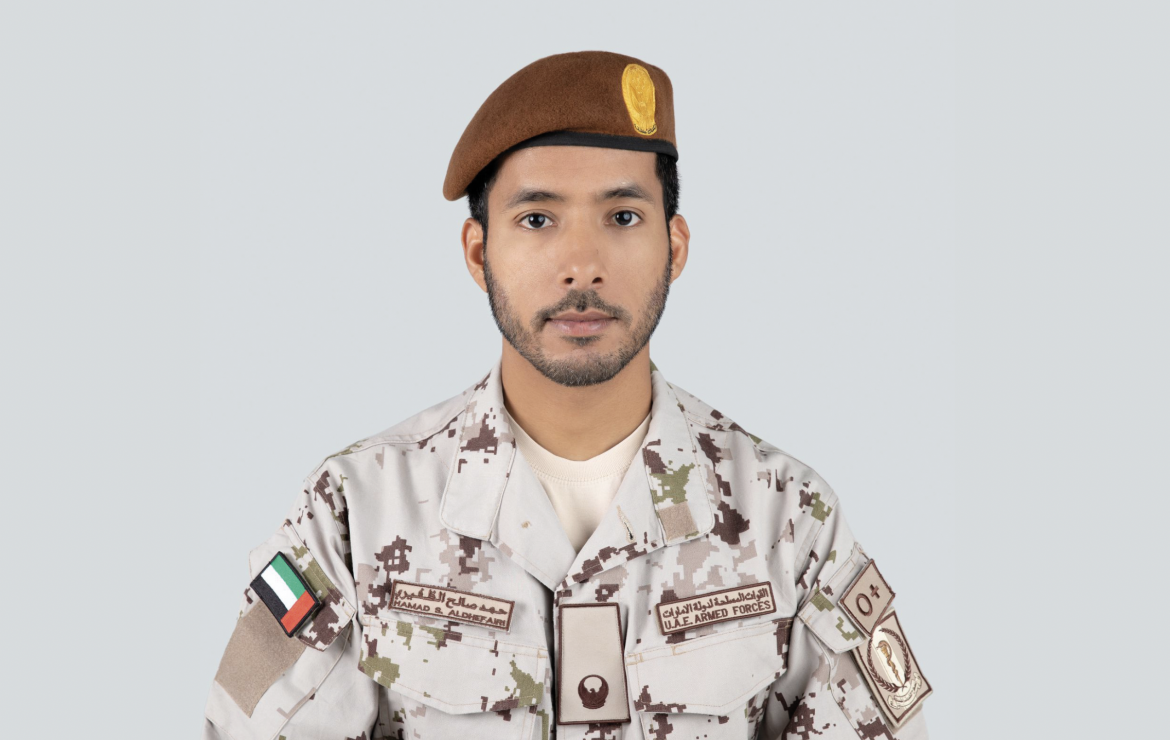As a medical specialty, Family medicine is rooted in providing comprehensive and continuous primary health care for families and individuals of both sexes and all ages.
Principles of family medicine:
• Disease prevention
• Screening and early detection of common diseases
• Promoting mental and physical health
• Raising awareness regarding health for individuals and society
It is a common misconception that the family doctor is a general practitioner (GP), while Family Medicine emerged as an independent medical specialty in 1950, and it requires 2 to 4 years of education for the doctor to be familiar with the most important principles needed.

This explains why Family Medicine is so important for military institutions, given the effectiveness and diversity of this specialty as a suitable medical specialty for the basic roles of the medical services corps in both peace and war times.
During peaceful times, the Zayed Primary Health Care Center in Abu Dhabi, the Family Medicine Department of Zayed Military Hospital in Al Bataeh, and the clinics of the Armed Forces provide members of the armed forces and their families who require medical care, including people of all ages and both sexes.
These medical centers work on promoting general health and well-being and providing opportunities to detect diseases early, health education, weight loss as well as quitting smoking.
During times of operations, the family physician is considered the front line for providing medical care and the primary link for coordinating qualified medical treatment, given the diversity of medical conditions that have to be dealt with.
Medical conditions the family physician faces on a daily bases in the clinic:
· Upper respiratory infections
· High blood pressure diseases
· diabetes
· High cholesterol
· Asthma
· Depression and stress
· Back, joint and muscle pains
· Inflammation of the eyes
· skin diseases
The physician may sometimes encounter uncommon conditions that require skill to diagnose, as well as knowledge of the most appropriate medical specialties needed to provide the patient with health care that may exceed the capabilities of primary medical treatment centers.
The skill of such a physician lies in his/her ability to treat patients without frequently referring cases, coordinating treatment with available health resources and services such as health educators, psychotherapists, physical and occupational therapy, and rehabilitation.
In an ideal health system, the percentage of transfer from family medicine to various medical specialties ranges from 20% to 30%, allowing medical institutions to focus on providing treatment for the most complex and argent cases, as well as reducing waiting time for patients, according to statistics.
Studies indicate that proper spending on primary health care is an investment in the health sector’s financial budgets and in the long term reduces spending on the treatment of complications that could otherwise be prevented through early examination and treatment.
The pandemic has reiterated the importance of the health sector for countries, which His Highness Sheikh Mohammed bin Rashid Al Maktoum, Vice President and Prime Minister of the UAE and Ruler of Dubai, “God bless him” summed up in his tweet saying, “The world has been arguing for years, which of the two is the leader, politics or economy? Which is the cart and which is the horse? And the time of the pandemic taught us that health carries the horse and its cart, leading them wherever it wants… politics and the economy are dwarfed by the pandemic, which left the intellectuals of the world confused, afraid and lost!”
The pandemic brought a new awareness of the priorities of the health sector and the importance of building solid foundations that can support it during crises, such as primary health care, which played different roles in diagnosis, treatment, awareness, and psychological stability during the spread of Covid-19.
Conclusion
Health is a duty and mutual responsibility between the individual and the institution providing him with health care, and initiatives are where the two meet to achieve the goals of the health and physical readiness of the armed forces.
Major Doctor/ Hamad Saleh Hassan Al Dhafiri, Family Medicine Specialist, Department of Defense’s Medical Services Corps













